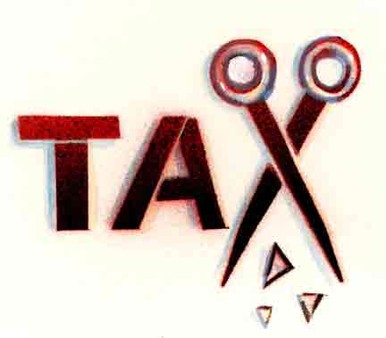COMMENT: Taxes!
Calls to cut taxes should not come as a surprise. Individuals, business establishments, and corporations have been singing this tune for years. Resistance to taxes goes hand in hand with government at all levels. “No Tax Payments!”screamed a headline in Germany’s Neue Rheinische Zeitungon November 16, 1848. The article’s closing sentence was as provocative as its headline:“Refusal to pay taxes is the primary duty of the citizen!” The author was … Karl Marx!
Marxism is alive and well; it moved from the lunchroom to the boardroom.
Karl Marx’s political philosophy has been tried and proven to be a costly error. Should we adopt Marxism as our guiding philosophy on taxation? I don’t think so. Taxes appear as a curse only when we refuse to recognize the connection between taxes and services.
We have many options to reduce taxes. We could replace all traffic lights with stop signs or do without intersection controls of any kind and rely instead on section 173 of the Motor Vehicle Act to regulate the flow of traffic. We could also do without street sweeping and without park maintenance. Car repair shops and tire dealers would do a brisk business if our streets and highways had more and deeper potholes. But governments are not accustomed to such demands. Governments are accustomed to demands for more services delivered with greater efficiency. Such demands, however, are rarely supported by offers to pay more taxes.
Taxation does raise questions about fairness. Who should pay for what, and how do we define fairness. Property values are assessed by the B.C. Assessment Authority as directed by the Assessment Act. Municipal councils must set one rate for each property class, they cannot consider individual property owners’ ability to pay. If homes in my neighbourhood sell at a good price this year (meaning at a healthy profit) and sales in other neighbourhoods remained flat, the assessed value of my home will increase next year relative to the value of other homes. My former neighbour made a profit and as a consequence I end up having to pay higher taxes. Is that fair?
Discretionary municipal revenue options are limited to property taxes and user fees. Property taxes require little administration on the part of the municipality. When does a user fee become a tax? If road maintenance and snow removal services were to be financed from user fees, based on X cents per ton/kilometer of road usage by individual vehicle owners, invoiced monthly, payment for road services would be fair, but the cost of administration would likely exceed the cost of doing the job in the first place. Municipal revenues are collected about as efficiently as can be done. Many municipalities issue separate invoices for taxes, water user fees, sewer user fees, garbage collection fees, and more. Homeowners in others get one tax bill per year for the lot. What this method lacks in fairness is compensated by administrative efficiency.
Governments should focus on service delivery, concentrating on both efficiency and effectiveness. Asking governments to play the role of Solomon and “put the wisdom of God” in the allocation of the tax burden can place them in a no-win position to the point of distract government from its principal duty. If one group of taxpayers believes its share of the tax burden to be too high, it should raise the issue with the other members of the “taxpayer family”.
Maybe residential property owners should form their own association. Maybe organizations such as the Canadian Taxpayers Federation should establish divisions within its organization to represent wage earners, home owners, small business, global corporations, and all other taxpayers who consider themselves to be in a unique class and deserving of special consideration.
Let an umbrella taxpayers’ organization come up with a burden allocation acceptable to all. How long would it take for debates in such an organization to mirror what we now witness in council chambers, legislative assemblies, and parliament?
I am sure that, should such an organization make a submission to a government at any level on the subject of fairness in tax burden allocation, the recommendation would be accepted with gratitude and an eager willingness to comply with the request.
Andre Carrel is a retired City Administrator, journalist, author, and full-time grandpal.


























